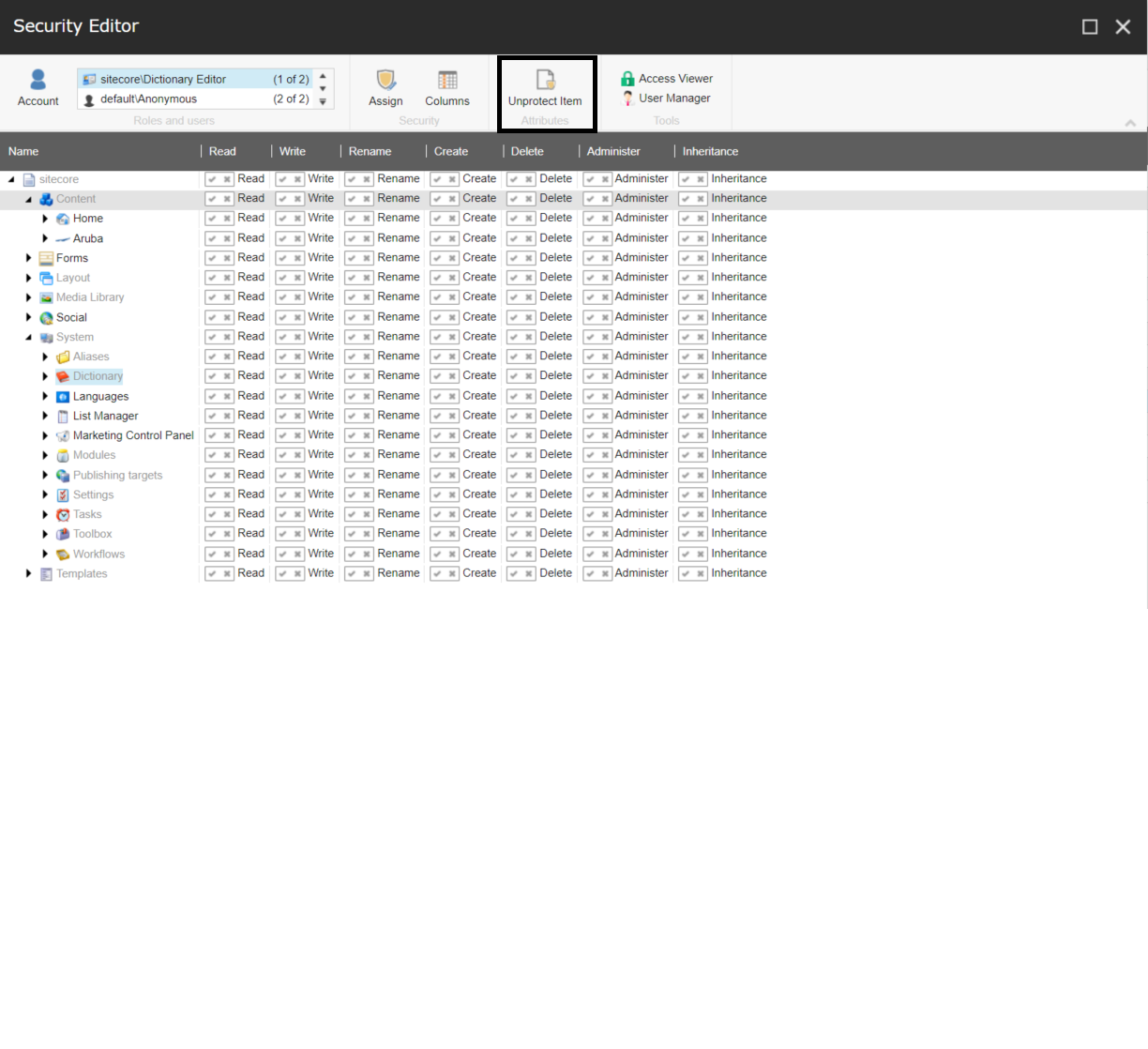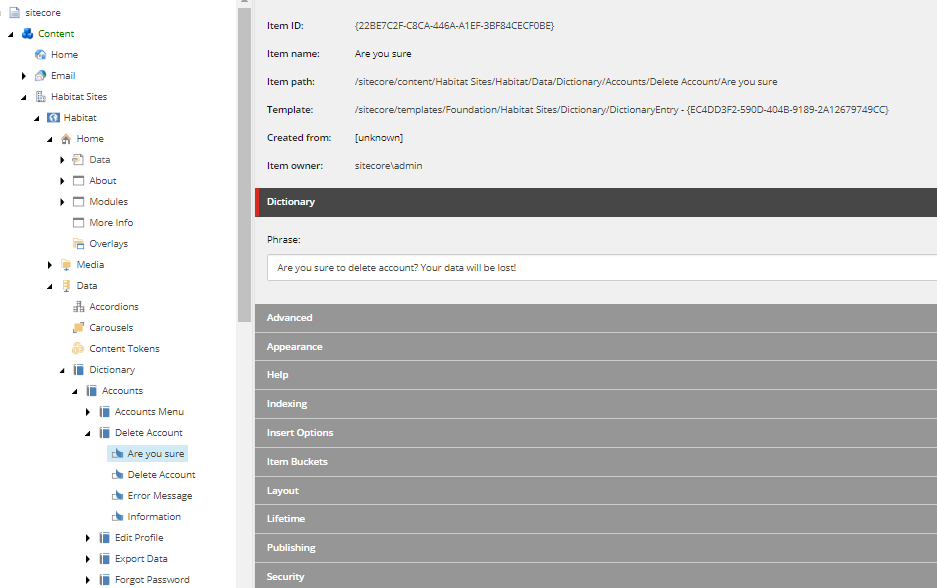What Joost say is 100% correct, I recommend to use specific domain to specific website.
Is really easy to copy your dictionary domain from /system node to other place.
In version 6.6 as far I remember in site definition was introduce a new attribute dictionaryDomain.
I recommend to add the dictionary item not under System node and to be specific to the site, in case you have a multisite solution.
You site definition will look like :
<site name="yoursitename" patch:before="site[@name='website']"
...
dictionaryDomain="YourDictionaryDomain"
... />
The dictionaryDomain is resolved in the below processor :
<!-- Performs dictionary lookups. The Sitecore.Globalization.Translate.Text() method invokes this pipeline. -->
<getTranslation>
<processor type="Sitecore.Pipelines.GetTranslation.ResolveContentDatabase, Sitecore.Kernel" />
<processor type="Sitecore.Pipelines.GetTranslation.TryGetFromDomain, Sitecore.Kernel" />
<processor type="Sitecore.Pipelines.GetTranslation.TryGetFromFallbackDomains, Sitecore.Kernel" />
<processor type="Sitecore.Pipelines.GetTranslation.TryGetFromSiteDomain, Sitecore.Kernel" />
<processor type="Sitecore.Pipelines.GetTranslation.TryGetFromContextDatabase, Sitecore.Kernel" />
<processor type="Sitecore.Pipelines.GetTranslation.TryGetFromCoreDatabase, Sitecore.Kernel" />
</getTranslation>


